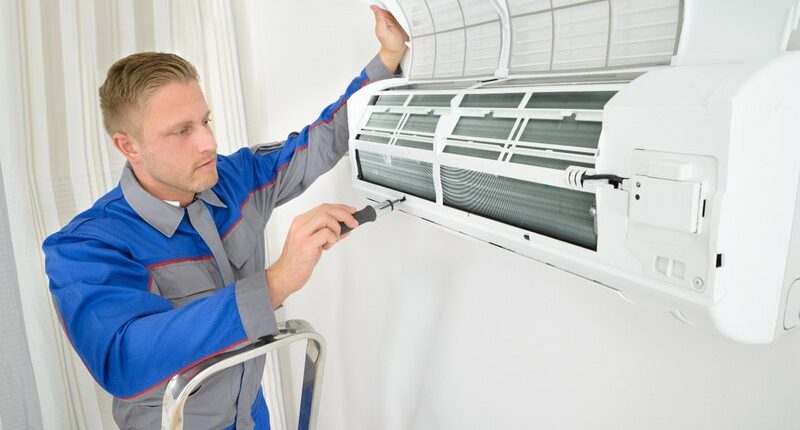The Basics of Air Conditioning
Air conditioners have three main components: a compressor, a condenser coil, and an evaporator coil. They also have a special chemical called refrigerant that loops through the system absorbing and removing heat. Working together these three components convert the refrigerant from gas to liquid and back to gas quickly.
The Importance of a Professional Installation
A properly installed air conditioner or furnace helps to:
- Ensure that comfort levels are met
- Keep equipment running to manufacturers’ specifications
- Reduce on-going service costs
- Extend the life of the unit
- Create less noise when running
What’s more, having air conditioning doesn’t just keep you and your family comfortably cool and dry. It can also protect your home. Since heat and humidity can swell wood furniture, flooring, molding and structural beams, this can eventually cause serious damage. Summer weather also makes basements damp and can spread mold or mildew.
Don’t take a chance when it comes to your safety and get a strong start from the beginning by hiring only experienced, credentialed professionals to install your HVAC equipment.

Things To Consider Before Installing Air Conditioning
Things To Consider Before Installing Air Conditioning
What Type of Air Conditioner Should I Get?
There are several types of air conditioning and hundreds of different brands on the market, but when looking for an AC for your home or business the options are reduced to a few.
What Size Air Conditioner Do I Need?
One of the most important initial steps for installing air conditioning is to make sure you select the right size.
When we talk about air conditioning sizing, we are not referring to the dimensions of the appliance itself but to the average power in kW.
There are many factors that can impact on the size that you’ll need. Some of them are:
- The size of the room where it’s going to be placed
- The insulation of the room
- The composition of the walls
- The type and number of windows
What Is The Best Place For Installing Air Conditioning?
The room and the position where you place the indoor and outdoor unit play an important role in the efficiency and performance of your air conditioning.
What is Energy Efficiency and why is important?
The energy efficiency of air conditioning and heating is the amount of energy generated by each kW of energy consumed. The higher the energy generated for each kW spent, the more efficient the unit is.
Surely when buying some electrical household equipment you will have noticed that they all have a label with different letters. This energy label allows consumers to quickly and easily know the energy efficiency of their appliances.


